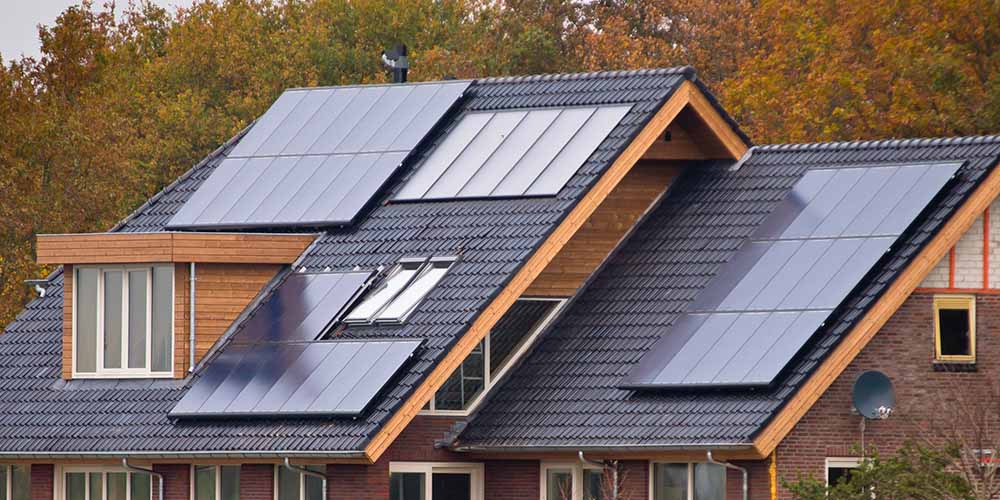The escalating cost of fuel, at a time when the cost of living is rising so steeply, makes many homeowners and landlords give serious thought to alternative sources of energy.
To that end, energy captured from the sun’s rays through solar panels may make an obvious choice. Indeed, this year has already seen the installation of solar panels on a record number of homes and with estimated savings of up to £700 a year on energy bills.
Here are some frequently asked questions on solar panels.
What is solar energy?
It’s a simple question but one that is worth reminding ourselves about. Solar energy simply refers to the latent energy radiated by the sun. That energy is captured by solar panels that can convert the sun’s rays into electricity.
Are solar panels cost-efficient?
By installing solar panels, says British Gas, you stand to win on several counts:
- by switching to a “greener” source of fuel you are doing your bit to forge a more sustainable way of living;
- over time, if you have bought the solar panels outright (rather than leasing them) you will have recouped the cost of installation and will be making real savings on the cost of the electricity you consume;
- you could earn an income by selling back to the grid any excess energy generated by your solar panels; and
- the installation of solar panels could add to the capital value of your home.
Do they work whether the sun is in or out?
Clearly, solar panels tend to be at their most efficient in the summertime when there is plenty of sunshine – but they continue to work perfectly well throughout the year even when it is cloudy.
Indeed, when it is cold and bright, solar panels perform with even greater efficiency than in warm weather. That is because of the greater difference in energy between the sunlight’s photons and the solar cells’ electrons. It is that sharper contrast that increases the power generated by your solar panels.
Is planning permission needed?
Unless your home is a listed building, located in a conservation area, on the part of a wall facing the road, or if the panels overhang the roof or wall by more than 200mm you will typically not require planning permission for the installation of solar panels – it will be formally designated as “permitted development” explains the British Dwelling website.
Bear in mind, however, that the installation will need to be inspected and approved by the Building Control authorities of your local council – to confirm that the roof is strong enough to take the weight of the solar panels and to check that all the electrical circuitry meets the relevant safety standards.
When considering solar panel installation, speak to your local council first to understand any potential legal implications.
How much will the installation cost?
As you might imagine, the cost of any installation is extremely variable and will depend on the type of panels used, the size of the system, and the structure and configuration of the roof. Estimates range from £7,000 to £10,000.
Theoretically, installation could be done by a competent DIY enthusiast, but the installation and associated electrical work are more than usually complicated. Work done by professionally qualified contractors is likely to be preferable.
Cleaning and maintenance
There are no moving parts, so your solar panels require a minimum level of maintenance. Nevertheless, keep in mind that the panels need to let in the maximum amount of available light to convert the sun’s rays into power. That means keeping the panels as clean as possible.
Although they will need inspecting for signs of damage every couple of years or so, the relatively maintenance-free nature of solar panels makes them a credible and efficient solution for landlords as well as owner-occupiers.
Should I buy or lease solar panels?
The decision to buy or lease solar panels depends on your individual circumstances and preferences. Both options have their pros and cons – such as:
- owned outright solar panels initially being costlier to install but then offering longer term savings;
- leased solar panels requiring little to no upfront costs but saving you less money as a portion of the energy generated goes to the leasing company.
It is important to note that if you decide to sell your home and your solar panels are leased, this may affect any prospective buyers’ mortgage approval. This is because where mortgage lenders are concerned, the existence of a lease agreement for solar panels may create uncertainty with respect to the ownership of the solar panels. Also, for a mortgage lender, leased solar panels may affect the ease with which the property can be resold following any need for its repossession.
Summary
If you want to use energy in an environmentally friendly and sustainable way, it may be worth considering solar panels. Then you’ll be generating the electricity you use from the abundant and renewable power of the sun.
Disclaimer: Please note that this article is purely for informational purposes only and should not be deemed as advice.








